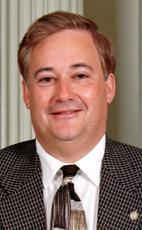Mr. Speaker, I rise on a point of order with respect to an incident that happened today at the Standing Committee on National Defence and Veterans Affairs.
The standing committee adopted a procedure restricting me from tabling a document because of the official language that I chose to use.
Moving motions and tabling documents in either official language is a right granted to members by the authority of the House and by law. Yet I was denied these rights today at the Standing Committee on National Defence and Veterans Affairs.
Subsection 4(1) of the Official Languages Act reads as follows:
English and French are the official languages of Parliament, and everyone has the right to use either of those languages in any debates and any other proceedings of Parliament.
This subsection defines the right of members of parliament to speak and submit documents in the language of their choice in parliamentary proceedings.
The standing orders state:
All motions shall be in writing ... before being debated or put from the Chair ... it shall be read in English and in French by the Speaker, if he or she be familiar with both languages; if not, the Speaker shall read the motion in one language and direct the Clerk of the Table to read it in the other—
Standing Order 116 states that “in a standing committee the Standing Orders shall apply”. Standing Order 116 lists some exceptions, such as the election of the Speaker, seconding of motions and times of speaking.
I would like to remind you, Mr. Speaker, of two important rulings in regards to committees on standing orders of the House. On June 20, 1994 and November 7, 1996 the Speaker ruled that while it is a tradition of this House that committees are masters of their own proceedings, they cannot establish procedures which go beyond the powers conferred upon them by the House.
The committee, by adopting a procedure restricting members from introducing documents in the official language of their choice, has established a procedure which goes beyond the powers conferred upon it by the House. This committee is in breach of our standing orders and the law.
On May 5, 1998 the member for Esquimalt—Juan de Fuca raised a similar case regarding the Standing Committee on Health. In his presentation he used similar arguments that I am putting forth today. Unfortunately this matter was not dealt with. The Speaker has not yet ruled on that point of order and the matter of our rights as members of parliament to operate in the language of our choice, as provided for in the rules of the House and in common law, still remains unresolved today.
The House should be aware that the Speaker on May 5, 1998 made the following statement:
It goes without saying that members of this House are free to operate in either of the official languages.
In conclusion, I remind the Speaker of the recommendation of the commissioner of official languages in his 1996 report to parliament:
The Commissioner recommended that the Speaker of the House advise committee chairs, referring particularly to Subsection 4(1) of the Official Languages Act, that language should not be an obstacle to Members of Parliament in the performance of their duties.
It is obvious that this warning from the Chair is overdue.

